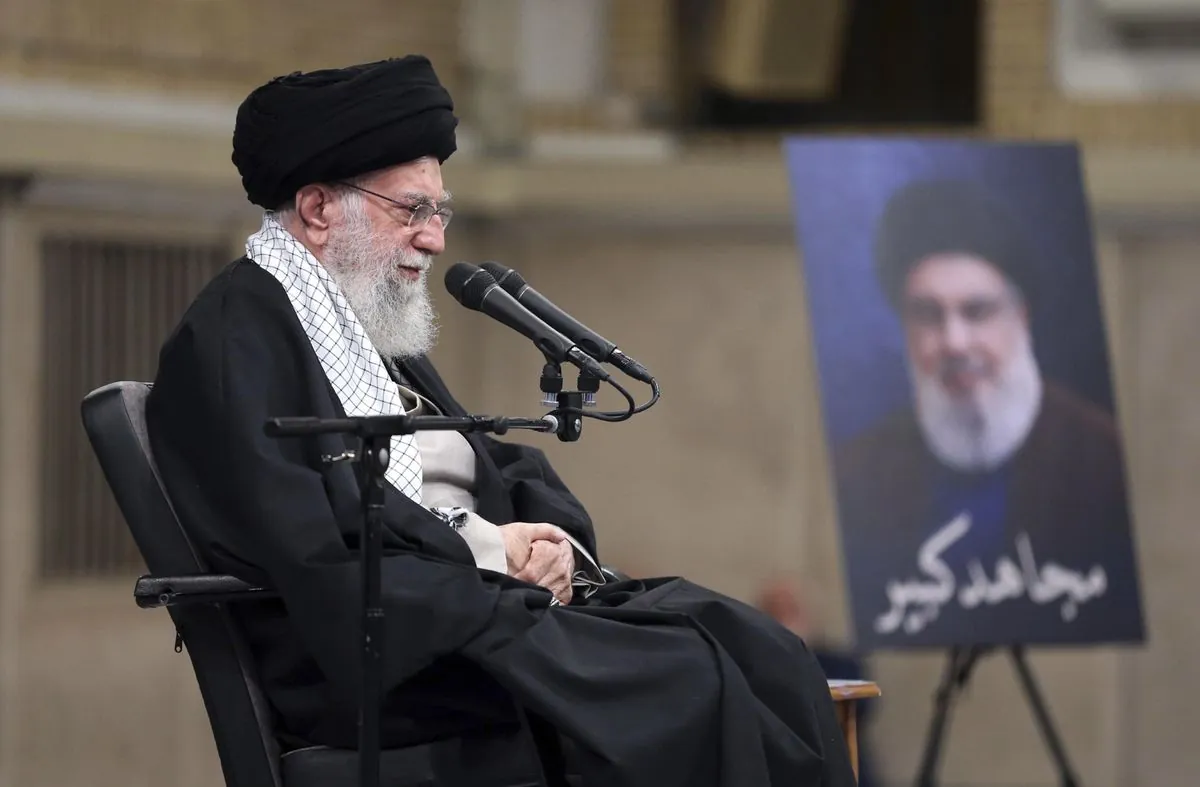Ayatollah Ali Khamenei, Iran's Supreme Leader since 1989, addressed a congregation at Tehran's Mosalla mosque on Friday, October 4, 2024, commending the recent missile strike against Israel. This rare appearance at Friday prayers marked his first such address in nearly five years.
The Iranian leader characterized the missile attack, which occurred on Tuesday, October 1, 2024, as a "shining" achievement by Iran's armed forces. This assault involved the launch of at least 180 missiles towards Israel, showcasing Iran's extensive missile program, which is one of the largest in the Middle East.
Israel reported intercepting many of the incoming projectiles, likely utilizing its Iron Dome air defense system. U.S. naval destroyers stationed in the Mediterranean Sea also assisted in Israel's defense efforts. Iran, however, claimed that most of its missiles reached their intended targets.
Khamenei justified the missile strike, stating it was based on international law, Iranian legislation, and Islamic principles. He also expressed support for the Hamas-led attack on southern Israel that occurred nearly a year ago on October 7, 2023, describing it as a legitimate action by the Palestinian people.
The Supreme Leader's speech included a call for readiness against what he termed "the enemy," addressing nations from Afghanistan to Yemen. He praised those who had lost their lives in such efforts, urging continued resistance.
"Our resisting people in Lebanon and Palestine, you brave fighters, you loyal and patient people, these martyrdoms and the blood that was shed shouldn't shake your determination but make you more persistent."
Prior to Khamenei's address, a ceremony commemorating Lebanese Hezbollah leader Hassan Nasrallah took place. Hezbollah, a powerful political and military organization in Lebanon, has received significant support from Iran, including weapons and billions of dollars in funding.
In a related development, Iranian Foreign Minister Abbas Araghchi arrived in Beirut, Lebanon, on the same day. His visit was expected to focus on discussions about the ongoing conflict between Israel and Hezbollah, which has been a source of tension since the 1980s.
Iran's Foreign Ministry spokesperson, Esmail Baghaei, announced that Iran had dispatched a shipment of aid to Lebanon, comprising 10 tons of food and medicine. This move aligns with Iran's constitutional mandate to support what it perceives as oppressed Muslims worldwide.
The recent events highlight Iran's complex role in regional politics, its support for groups like Hamas and Hezbollah, and its ongoing tensions with Israel and Western nations. As Iran continues to develop its military capabilities, including air defense systems like the Bavar-373, and maintains its stance on supporting what it calls the "Axis of Resistance," the potential for further escalation in the Middle East remains a significant concern for the international community.
